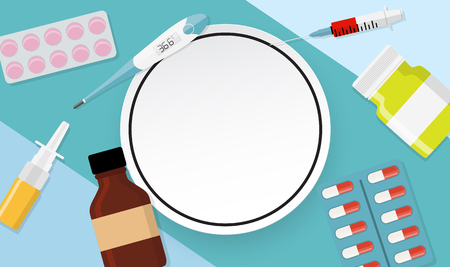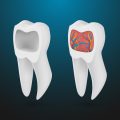Introduction to Collagen Supplements
Collagen supplements have become a major trend among health-conscious Americans, standing out as one of the most sought-after products in the wellness industry. Derived primarily from animal sources such as bovine, marine, or poultry, these supplements aim to support the body’s natural collagen production, which declines with age. In the United States, consumers often turn to collagen powders, capsules, and drinks for benefits like improved skin elasticity, joint comfort, and stronger hair and nails. Scientific studies have shown that regular collagen supplementation may help reduce joint pain, increase skin hydration, and support muscle mass—key concerns for many American adults leading active lifestyles. As their popularity continues to rise across all age groups, understanding when and how to take collagen for optimal absorption is becoming increasingly important for maximizing these health benefits.
2. How Collagen is Absorbed in the Body
To understand the best time for taking collagen supplements, it’s essential to know how collagen is absorbed by the body. Collagen, a large and complex protein, cannot be absorbed in its whole form; instead, it must first undergo a series of digestive and metabolic processes that break it down into bioavailable peptides and amino acids. The efficiency of these processes directly impacts the supplement’s effectiveness.
The Digestive Breakdown of Collagen
Collagen digestion begins in the stomach, where gastric acids and enzymes—primarily pepsin—initiate the hydrolysis of collagen’s triple-helix structure. This process produces smaller polypeptides, which then move into the small intestine. Here, proteases such as trypsin and chymotrypsin further break down these polypeptides into dipeptides, tripeptides, and free amino acids.
Key Enzymes Involved in Collagen Digestion
| Enzyme | Location | Function |
|---|---|---|
| Pepsin | Stomach | Initiates breakdown of protein structure |
| Trypsin | Small intestine | Cuts peptide bonds to create smaller peptides |
| Chymotrypsin | Small intestine | Further degrades peptides for absorption |
Absorption Pathways and Bioavailability Factors
The resulting collagen-derived peptides and amino acids are absorbed through the intestinal lining via active transport mechanisms. Dipeptides and tripeptides use specific peptide transporters (PEPT1), while free amino acids utilize their own amino acid transport systems. Once absorbed into the bloodstream, these building blocks are distributed throughout the body to support skin, joint, and connective tissue health.
Main Absorption Routes
| Molecule Type | Transport Mechanism |
|---|---|
| Dipeptides/Tripeptides | PEPT1 transporter (active transport) |
| Amino Acids | Amino acid-specific transporters (active/facilitated diffusion) |
Bioavailability Considerations for Maximum Absorption
The bioavailability of collagen supplements is influenced by several factors: the molecular size of the peptides, the presence of other nutrients or inhibitors in the digestive tract, stomach pH levels, and even timing relative to meals. Hydrolyzed collagen—also known as collagen peptides—is specifically processed to enhance absorption rates because of its reduced molecular weight.
This technical understanding highlights why choosing an optimal time for supplementation can maximize absorption efficiency, making your daily dose of collagen more effective for supporting overall health.

3. Influence of Timing: Morning, Night, or Post-workout?
When it comes to optimizing the absorption of collagen supplements, timing plays a crucial role. Several scientific studies and surveys on American consumer habits reveal distinct patterns in when people prefer to take collagen — typically in the morning, at night, or immediately after exercise. Each option has unique benefits and potential drawbacks, depending on your lifestyle and biological rhythms.
Morning Intake: Fasting State Advantage
Many nutrition experts recommend taking collagen first thing in the morning, especially on an empty stomach. The rationale is that your digestive enzymes are more active and less likely to be competing with other proteins from food, which could enhance collagen peptide absorption. Some research suggests that ingesting collagen during a fasting state may increase its bioavailability, allowing for greater uptake by the body’s tissues.
Nighttime Consumption: Supporting Recovery
Others opt to consume collagen before bed, aligning this habit with the body’s natural overnight repair processes. During sleep, your body undergoes cell regeneration and tissue growth, theoretically maximizing the use of amino acids from hydrolyzed collagen. While clinical evidence supporting superior nighttime absorption is limited, anecdotal reports from American consumers highlight perceived benefits in skin hydration and joint comfort when taken as part of a bedtime routine.
Post-workout: Synergy With Muscle Repair
Taking collagen after exercise is another strategy gaining popularity among fitness enthusiasts in the U.S. Physical activity increases blood flow and triggers muscle repair pathways, potentially enhancing nutrient delivery to tissues. Studies indicate that combining collagen supplementation with resistance training can support joint health and muscle recovery. Consuming collagen within 30-60 minutes post-exercise may therefore align well with these physiological windows for optimal absorption.
Current Research vs. Real-world Habits
While direct comparative studies on timing are still emerging, most evidence points toward the importance of consistency over exact timing. However, integrating collagen intake with specific daily routines — whether morning coffee, nightly wind-downs, or post-gym shakes — can improve adherence and potentially leverage minor absorption advantages based on individual metabolism and activity patterns.
Key Takeaway
The best time to take collagen supplements for maximum absorption ultimately depends on personal preference, digestive patterns, and lifestyle factors. Whether you choose morning, night, or after workouts, aligning your intake with moments when your body is most receptive can help maximize results while fitting seamlessly into your daily schedule.
4. Effect of Food and Dietary Context
When it comes to collagen supplement absorption, whether you take them with or without food can significantly influence their effectiveness. In the United States, dietary habits are diverse, ranging from high-protein breakfasts to carb-heavy dinners, so understanding how these contexts interact with collagen is essential for maximizing benefits.
The gastrointestinal environment changes depending on food intake. Taking collagen on an empty stomach may enhance absorption because stomach acid levels are higher, aiding in the breakdown of collagen peptides into absorbable amino acids. However, consuming collagen with certain foods—especially those rich in vitamin C—can further boost collagen synthesis, as vitamin C is a crucial cofactor in collagen formation.
Below is a comparison of how common US dietary scenarios impact collagen supplement absorption:
| Scenario | Absorption Efficiency | Notes |
|---|---|---|
| Empty Stomach (Fasting) | High | Increased stomach acidity may break down peptides more efficiently. |
| With Breakfast (Typical: Eggs, Toast, Orange Juice) | Moderate to High | Vitamin C from orange juice supports synthesis; proteins may compete for absorption. |
| With Dinner (High Protein & Carbohydrate Meal) | Moderate | Larger meals slow digestion; protein competition possible. |
| With Vitamin C-rich Snacks (e.g., Berries, Citrus Fruit) | High | Vitamin C maximizes collagen production pathways. |
| With Coffee or Tea | Variable | Coffee and tea may reduce absorption slightly due to polyphenols. |
For most Americans, integrating collagen supplements into a routine that includes vitamin C-rich foods—like adding powder to a morning smoothie with berries—or taking them on an empty stomach before breakfast can provide optimal results. However, if you have a sensitive digestive system or experience discomfort when taking supplements alone, pairing collagen with a light meal is still effective. Ultimately, being mindful of both timing and your overall dietary context can help you get the most out of your collagen supplementation efforts.
5. Recommendations for Maximum Absorption
Optimal Timing: When Should You Take Collagen?
Based on current scientific evidence, the timing of collagen supplement intake can influence absorption and effectiveness. While collagen is not highly sensitive to meal timing like some nutrients, research suggests that taking collagen on an empty stomach or at least 30 minutes before a meal may improve bioavailability. This is because lower stomach acidity before eating allows for better breakdown and absorption of collagen peptides.
Frequency: How Often Should You Take Collagen?
For American users seeking practical results, daily supplementation is recommended. Most clinical studies use dosages ranging from 2.5g to 15g of hydrolyzed collagen per day. Consistency matters more than timing—collagen should be integrated into your routine every day, whether you prefer it in the morning, afternoon, or evening. Setting a regular schedule helps ensure compliance and maximizes benefits for skin, joints, and overall wellness.
Method: What Is the Best Way to Consume Collagen?
Collagen supplements are available in various forms—powders, capsules, gummies, and ready-to-drink beverages. Evidence shows that hydrolyzed collagen (collagen peptides) is best absorbed by the body. For maximum convenience and absorption:
– Mix collagen powder into your morning coffee, smoothie, or water for a quick boost.
– Take capsules with a full glass of water to aid digestion.
– Avoid consuming collagen supplements with high-calcium foods at the same time, as calcium may inhibit peptide absorption.
Additional Tips for American Users
– Pair collagen with vitamin C-rich foods (like orange juice or berries) to support natural collagen synthesis.
– Consult your healthcare provider if you have food allergies or underlying health conditions.
– Choose reputable brands that provide third-party testing and transparent labeling to ensure product quality and safety.
Summary
For maximum absorption of collagen supplements, take them on an empty stomach or before meals, maintain daily intake, opt for hydrolyzed forms, and pair with vitamin C when possible. Adhering to these evidence-based guidelines will help American consumers get the most out of their collagen supplementation routine.
6. Common Mistakes and Myths
Despite the growing popularity of collagen supplements in the US, several misconceptions and mistakes persist when it comes to maximizing their absorption.
Myth 1: Timing Doesnt Matter
A common belief is that you can take collagen at any time and still get the same results. However, research suggests that timing does influence absorption—taking collagen on an empty stomach, particularly in the morning or before bed, may enhance bioavailability due to lower levels of competing amino acids from other dietary proteins.
Myth 2: Any Collagen Supplement Works the Same
Many Americans assume all collagen products are equally effective. In reality, hydrolyzed collagen (collagen peptides) has a smaller molecular size, making it easier for your body to absorb. Failing to check for this can reduce potential benefits, regardless of timing.
Common Mistake: Ignoring Vitamin C Intake
Collagen synthesis in your body relies heavily on vitamin C. A frequent mistake is taking collagen without ensuring adequate vitamin C intake, which can significantly limit effectiveness. Pairing collagen with a source of vitamin C, like orange juice or a supplement, supports optimal absorption and utilization.
Myth 3: More Is Always Better
Some believe that higher doses guarantee better results. Scientific studies indicate there’s a threshold after which extra collagen isn’t effectively used by the body. Overconsumption not only wastes money but may also cause digestive discomfort.
Mistake: Overlooking Consistency
Maximum absorption requires consistent daily use over weeks or months—not sporadic or irregular supplementation. Skipping days or forgetting doses undermines results, even if you’re taking collagen at the “right” time.
The Bottom Line
For maximum benefit, avoid these widespread myths and mistakes: pay attention to timing and form, combine with vitamin C, avoid excessive dosing, and maintain a regular routine. By following evidence-based strategies instead of popular misconceptions, you’ll give your body the best shot at absorbing and utilizing collagen supplements effectively.


